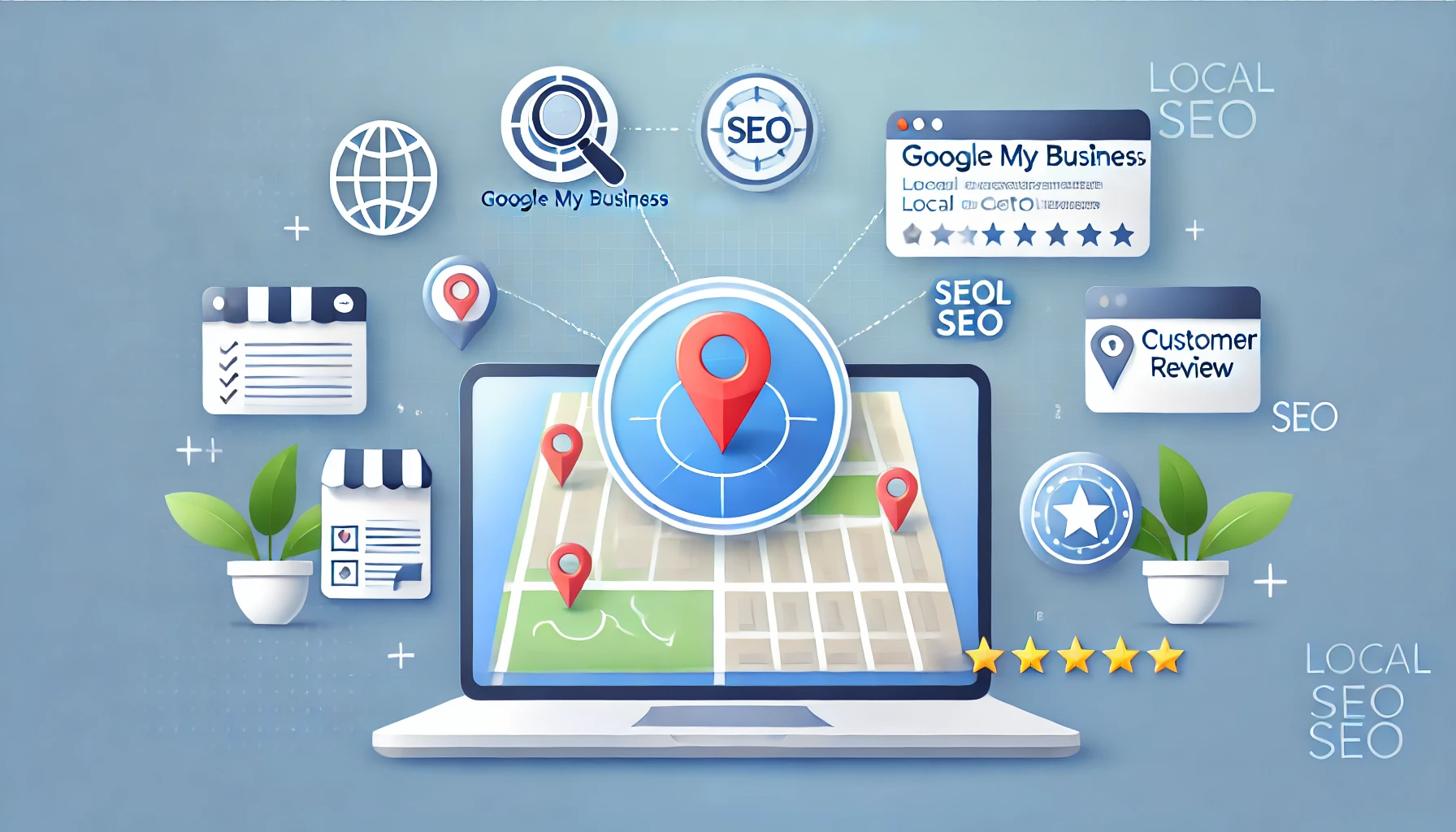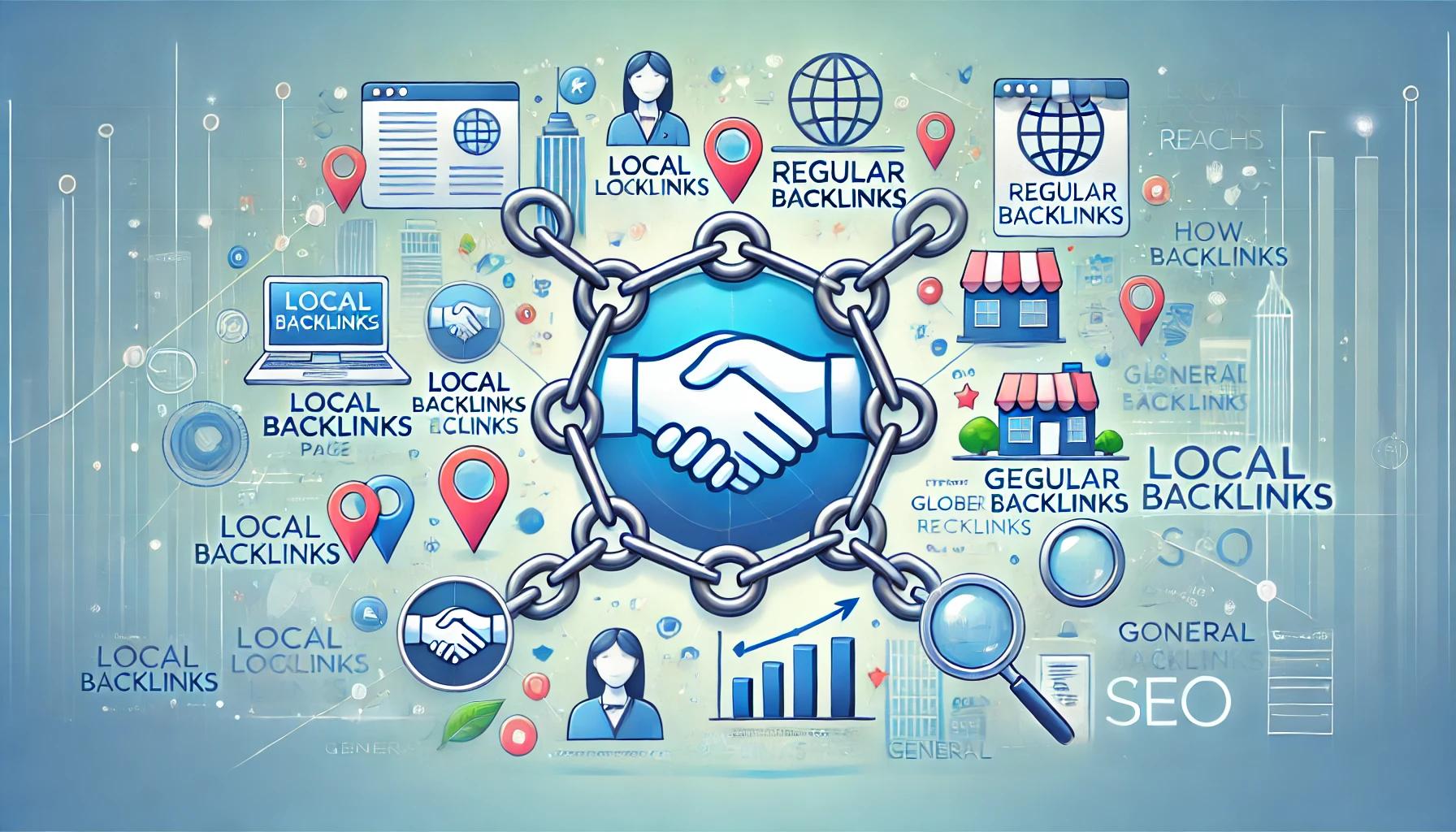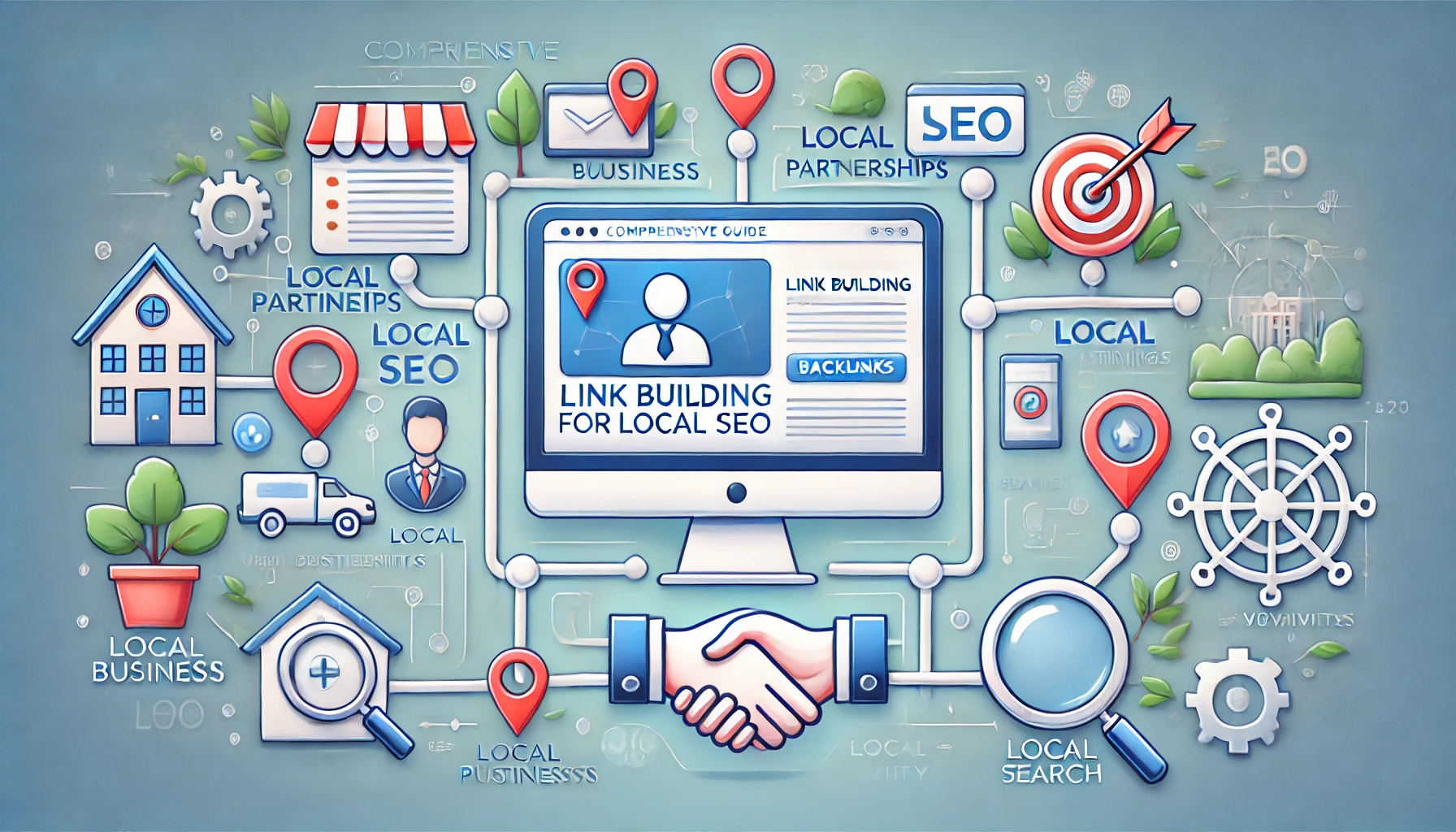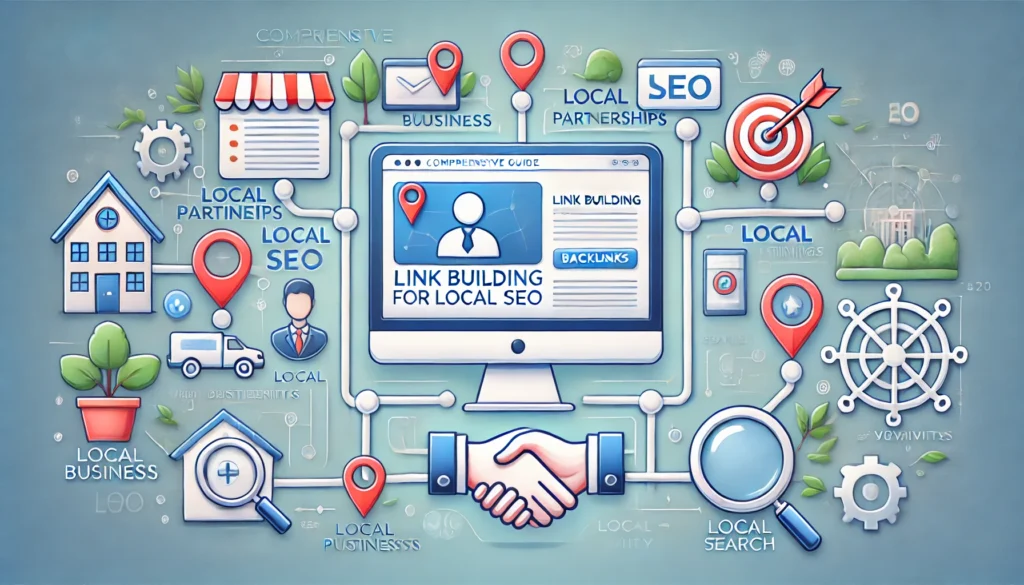The process of improving a website to make it more visible in local search results is known as local SEO. It is crucial for businesses that serve a specific geographic area, as it helps attract local customers. One of the key components of local SEO is link building, which involves acquiring hyperlinks from other websites to your own. This guide will provide an in-depth look at the importance of link building in local SEO and offer strategies to help businesses improve their local search rankings.
Table of Contents
ToggleII. Understanding Local Backlinks
What Are Local Backlinks?
Local backlinks are links from websites that are relevant to your business’s geographic location. These could be local news sites, blogs, or business directories. Local backlinks are valuable because they signal to search engines that your website is a trusted source of information within your community.
Why Local Backlinks Matter
Local backlinks are crucial for improving your website’s authority and relevance in local search results. They help search engines understand the geographic focus of your business, which can improve your visibility for location-based queries. High-quality local backlinks can also drive targeted traffic to your site, leading to more conversions.
How Local Backlinks Differ from Regular Backlinks
While regular backlinks can come from any reputable website, local backlinks specifically come from sources within your geographic area. These links are more relevant to local search queries and can have a more significant impact on your local SEO efforts compared to general backlinks.
III. Strategies for Local Link Building
A. Local Business Directories
Listing your business in local directories is one of the most effective ways to build local backlinks. These directories often have high domain authority and can drive significant traffic to your site. When choosing directories, look for those that are well-known and reputable. Ensure that your business information is consistent across all listings to avoid confusion and improve your local SEO.
B. Community Involvement
Getting involved in your local community can provide numerous link-building opportunities. Sponsoring local events, collaborating with local influencers, and engaging with local bloggers and journalists can result in valuable backlinks. These activities not only improve your local SEO but also enhance your business’s reputation within the community.
C. Localized Content Creation
Creating content that is relevant to your local audience is a great way to attract local backlinks. Write blog posts about local events, create resource pages for your community, and utilize local news and events in your content. This approach can help you earn natural backlinks from local websites and improve your visibility in local search results.
IV. Tools for Local Link Building
Overview of Link-Building Tools
There are several tools available that can help you identify and acquire local backlinks. These tools can streamline your link-building efforts and provide valuable insights into your local SEO performance.
Specific Tools for Local SEO
Tools like Moz Local and BrightLocal are specifically designed for local SEO. They can help you manage your local listings, track your local search rankings, and identify link-building opportunities.
How to Use These Tools Effectively
![]()
To get the most out of these tools, use them to conduct a thorough audit of your current local SEO efforts. Identify areas for improvement and use the tools to track your progress over time. Regularly updating your listings and monitoring your local backlinks can help you maintain a strong local SEO presence.
V. Case Studies and Examples
Successful Local Link Building Campaigns
Examining successful local link-building campaigns can provide valuable insights and inspiration for your efforts. Look for case studies that detail the strategies used and the results achieved.
Lessons Learned from These Case Studies
By analyzing these case studies, you can learn what works and what doesn’t in local link building. Use these lessons to refine your strategies and avoid common pitfalls.
Actionable Takeaways
Summarize the key takeaways from the case studies and apply them to your link-building efforts. Focus on strategies that have proven to be effective and adapt them to suit your specific needs and goals.
VI. Measuring Success
Key Metrics for Local Link Building
To measure the success of your local link-building efforts, track key metrics such as the number of local backlinks, referral traffic from local sites, and improvements in local search rankings.
Tools and Methods for Tracking Progress
Use tools like Google Analytics and local SEO platforms to monitor your progress. Regularly review your metrics and adjust your strategies as needed to achieve your goals.
How to Adjust Strategies Based on Results
If your metrics show that certain strategies are not working, don’t be afraid to make changes. Continuously refine your approach based on the data you collect to ensure that your link-building efforts are effective.
VII. Common Mistakes to Avoid
Avoiding Spammy Directories
Not all directories are created equal. Avoid listing your business in spammy or low-quality directories, as these can harm your SEO efforts. Focus on reputable, high-quality directories that are relevant to your business.
Overcoming the Temptation to Buy Links
Buying links may seem like a quick way to improve your SEO, but it can have serious consequences. Search engines penalize websites that engage in link-buying schemes, which can result in a significant drop in rankings. Prioritize obtaining genuine, high-quality backlinks through natural means.
Ensuring NAP Consistency Across All Platforms
NAP stands for Name, Address, and Phone number. Ensuring consistency in your NAP information across all listings and platforms is crucial for local SEO. Inconsistent information can confuse search engines and potential customers, leading to lower rankings and lost business.
VIII. Conclusion
Recap of Key Points
Local link building is a vital component of local SEO. By understanding the importance of local backlinks and implementing effective strategies, businesses can improve their local search rankings and attract more local customers.
Final Thoughts on the Importance of Local Link Building
Local link building requires time and effort, but the results are worth it. Building strong relationships within your community and creating valuable, localized content can significantly enhance your online presence.
Encouragement to Start Implementing Strategies
Don’t wait to start your local link-building efforts. Begin by implementing the strategies outlined in this guide and continuously refine your approach based on your results. With dedication and persistence, you can achieve great success in local SEO.
Definition of Local SEO

Local SEO (Search Engine Optimization) is the process of optimizing a website to increase its visibility in local search engine results. It focuses on promoting a business’s products or services to potential customers in a specific geographic area. Local SEO aims to ensure that when people search for relevant terms or keywords related to a business within a particular location, that business appears prominently in the search results.
Local SEO involves various strategies and techniques, including:
- Optimizing Google My Business Profile: Creating and maintaining a detailed and accurate Google My Business (GMB) profile is essential for local SEO. This profile provides search engines with important information about your business, such as address, phone number, business hours, and customer reviews.
- Local Citations: Ensuring that your business’s name, address, and phone number (NAP) are consistently listed across various online directories, local listings, and review sites. Search engines can validate the credibility of your business with the aid of consistency.
- Local Keywords: Incorporating location-specific keywords into your website content, meta tags, and descriptions. This makes your business more geographically relevant to search engines.
- Customer Reviews: Encouraging satisfied customers to leave positive reviews on platforms like Google, Yelp, and other local review sites. Reviews play a significant role in local search rankings and can influence potential customers.
- Backlinks from Local Websites: Acquiring backlinks from reputable local websites, such as local news sites, blogs, and business directories. These links signal to search engines that your business is a trusted local authority.
- On-Page SEO: Optimizing on-page elements of your website, including title tags, meta descriptions, header tags, and content, to reflect local relevance. This involves adding local keywords and providing valuable information to local users.
- Local Content: Creating content that addresses local topics, events, news, and community interests. This can attract local visitors and generate engagement, further boosting your local search visibility.
- Mobile Optimization: Ensuring that your website is mobile-friendly, as many local searches are conducted on mobile devices. For a user experience to be favourable, responsive design and quick loading times are essential.
Role of Link Building in Local SEO Success
Link building plays a crucial role in local SEO success by enhancing a website’s authority, relevance, and visibility within a specific geographic area. Here’s how link building contributes to local SEO:
1. Improves Local Search Rankings
- Authority and Trust: High-quality backlinks from reputable local websites signal to search engines that your business is a credible and trusted source of information within your community. This boosts your website’s authority, leading to higher rankings in local search results.
- Relevance: Backlinks from local sources, such as local news sites, blogs, and directories, help search engines understand the geographic focus of your business. This relevance is key for appearing in searches made by users within your area.
2. Drives Targeted Traffic
- Local Audience: Backlinks from local websites drive targeted traffic to your site from users who are already interested in local businesses or services. This increases the likelihood of attracting potential customers who are more likely to convert.
- Referral Traffic: When local websites link to your content, it can result in significant referral traffic from users who trust these sources. This traffic is often more engaged and ready to interact with your business.
3. Enhances Visibility and Brand Awareness
- Local Directories and Listings: Submitting your business to local directories and listings not only provides backlinks but also increases your visibility among local consumers who use these platforms for businesses.
- Community Involvement: Participating in local events, sponsorships, and collaborations can lead to mentions and backlinks from local websites. This not only improves your SEO but also raises your business’s profile within the community.
4. Supports Google My Business (GMB) Optimization
- Reinforces GMB Signals: Backlinks from local websites can reinforce the information in your Google My Business profile. Consistent NAP (Name, Address, Phone number) information across backlinks and GMB helps search engines verify your business’s location and legitimacy.
- Reviews and Citations: Positive reviews and citations from local websites that link back to your GMB profile can enhance your local SEO performance. These endorsements act as signals of trust and reliability.
5. Boosts Local Content and Engagement
- Localized Content: Creating content that is relevant to your local audience and getting it linked by local websites can significantly boost your engagement. This includes writing about local events, news, and issues that matter to your community.
- User Engagement: High-quality local backlinks can drive engaged users to your site, who are more likely to interact with your content, share it, and leave reviews, further enhancing your local SEO.
6. Competitive Advantage
- Outperform Competitors: Businesses that actively pursue local link-building are likely to outperform competitors who do not invest in these efforts. High-quality local backlinks can give you a competitive edge in local search rankings.
- Building Relationships: Establishing relationships with local bloggers, journalists, and influencers through link building can create long-term benefits, including ongoing backlinks and mentions that sustain your SEO efforts.
7. Mitigates Algorithm Changes
- Algorithm Resilience: Search engine algorithms are constantly evolving, but high-quality backlinks from reputable local sources tend to remain valuable. By building a strong local backlink profile, you create a resilient SEO foundation that can withstand algorithm changes.
How Local Backlinks Differ from Regular Backlinks

Local backlinks and regular backlinks are both crucial components of SEO, but they serve different purposes and offer unique benefits. Here is a thorough comparison that demonstrates how they differ:
1. Geographic Relevance
- Local Backlinks: These come from websites or sources that are geographically related to the business. For example, a local bakery in New York would benefit from backlinks from New York-based news sites, blogs, business directories, and community organizations.
- Regular Backlinks: These can come from any reputable website, regardless of geographic location. They are typically industry-specific rather than location-specific, such as a backlink from a national food blog for the same bakery.
2. Impact on Local Search Rankings
- Local Backlinks: These significantly boost local search rankings by signalling to search engines that your business is relevant to users in a specific geographic area. They help improve visibility for location-based searches.
- Regular Backlinks: These improve overall domain authority and visibility in broader, non-geographic search queries. They help with general SEO but do not specifically enhance local search rankings.
3. Audience Targeting
- Local Backlinks: Drive targeted traffic from users within your local area. The visitors who come from these backlinks are more likely to be potential customers looking for local services or products.
- Regular Backlinks: Attract a wider, more diverse audience. While they can bring significant traffic, the visitors may not always be geographically relevant, especially for businesses that operate in a specific locale.
4. Source Types
- Local Backlinks: Often come from local business directories, community websites, local news outlets, local event pages, and other region-specific sources.
- Regular Backlinks: These can come from a variety of sources, including industry blogs, national news sites, high-authority websites, forums, and educational institutions.
5. SEO Strategies
- Local Backlinks: Strategies include engaging with local community events, and local sponsorships, collaborating with local influencers, and submitting to local directories.
- Regular Backlinks: Strategies involve guest blogging on high-authority sites, earning mentions in national publications, and obtaining backlinks from industry-specific websites and forums.
6. NAP Consistency
- Local Backlinks: Emphasize the importance of consistent NAP (Name, Address, Phone number) information. Consistency in these details across local backlinks helps search engines verify the legitimacy and location of the business.
- Regular Backlinks: While still important, NAP consistency is less critical compared to local backlinks. The focus is more on maintaining domain authority and relevance within the industry.
7. User Intent and Conversion
- Local Backlinks: The traffic driven by local backlinks often has a higher conversion rate, as these users are actively seeking local services or products.
- Regular Backlinks: Traffic from regular backlinks can be diverse in intent. While it increases overall visibility, the conversion rate may vary depending on the alignment of the audience with the business’s offerings.
8. Examples
- Local Backlinks: A link from a local chamber of commerce website, a local event sponsorship mention, or a feature in a local newspaper.
- Regular Backlinks: A link from a national industry blog, a mention in a widely-read magazine, or a link from an authoritative industry forum.
How Local Backlinks Differ from Regular Backlinks
Local backlinks and regular backlinks are both vital for SEO, but they serve distinct purposes and offer unique benefits. Here is a thorough comparison that demonstrates how they differ:
1. Geographic Relevance
- Local Backlinks: These come from websites or sources related to the business’s geographic location. For instance, a local bakery in New York would benefit from backlinks from New York-based news sites, blogs, business directories, and community organizations.
- Regular Backlinks: These can come from any reputable website, regardless of geographic location. They are typically industry-specific rather than location-specific, such as a backlink from a national food blog.
2. Impact on Search Rankings
- Local Backlinks: Significantly boost local search rankings by signalling to search engines that your business is relevant to users in a specific geographic area. They help improve visibility for location-based searches.
- Regular Backlinks: Enhance overall domain authority and visibility in broader, non-geographic search queries. They contribute to general SEO but do not specifically enhance local search rankings.
3. Audience Targeting
- Local Backlinks: Drive targeted traffic from users within your local area. The visitors who come from these backlinks are more likely to be potential customers looking for local services or products.
- Regular Backlinks: Attract a wider, more diverse audience. While they can bring significant traffic, the visitors may not always be geographically relevant, especially for businesses that operate in a specific locale.
4. Source Types
- Local Backlinks: Often come from local business directories, community websites, local news outlets, local event pages, and other region-specific sources.
- Regular Backlinks: These can come from a variety of sources, including industry blogs, national news sites, high-authority websites, forums, and educational institutions.
5. SEO Strategies
- Local Backlinks: Strategies include engaging with local community events, and local sponsorships, collaborating with local influencers, and submitting to local directories.
- Regular Backlinks: Strategies involve guest blogging on high-authority sites, earning mentions in national publications, and obtaining backlinks from industry-specific websites and forums.
6. NAP Consistency
- Local Backlinks: Emphasize the importance of consistent NAP (Name, Address, Phone number) information. Consistency in these details across local backlinks helps search engines verify the legitimacy and location of the business.
- Regular Backlinks: While still important, NAP consistency is less critical compared to local backlinks. The focus is more on maintaining domain authority and relevance within the industry.
7. User Intent and Conversion
- Local Backlinks: The traffic driven by local backlinks often has a higher conversion rate, as these users are actively seeking local services or products.
- Regular Backlinks: Traffic from regular backlinks can be diverse in intent. While it increases overall visibility, the conversion rate may vary depending on the alignment of the audience with the business’s offerings.
8. Examples
- Local Backlinks: A link from a local chamber of commerce website, a local event sponsorship mention, or a feature in a local newspaper.
- Regular Backlinks: A link from a national industry blog, a mention in a widely-read magazine, or a link from an authoritative industry forum.
Conclusion
In conclusion, while both local and regular backlinks play crucial roles in enhancing a website’s SEO, their impacts and strategies differ significantly. Local backlinks are indispensable for businesses aiming to improve their visibility and authority within a specific geographic area. They contribute to higher local search rankings, attract targeted local traffic, and help establish a strong presence in the community. These links are essential for driving conversions from users actively seeking local services or products.





